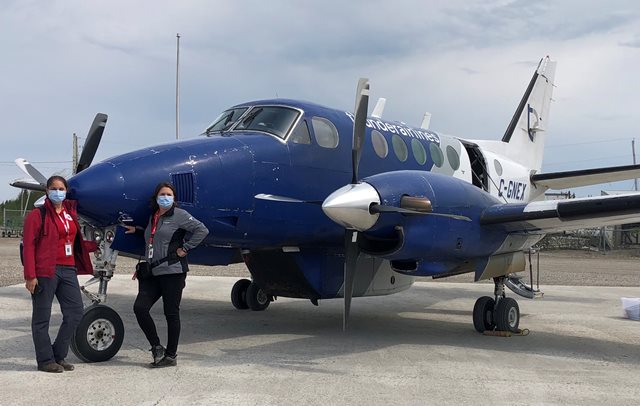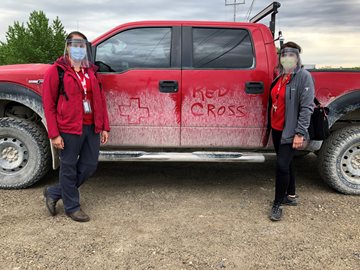
Every response is unique, creating opportunities to grow, both professionally and personally. This diversity of experience during responses is what I enjoy most about being an Emergency Manager. From wildfires to floods, or the current pandemic, each situation requires critical thinking, problem-solving, collaboration and creativity.
When we were first asked to support Kashechewan in their fight to overcome a COVID-19 outbreak, the situation was dire. . The community, which is only accessible by air, often faces numerous and sometimes concurrent crises or evacuations each year, and was now facing a new type crisis Over 200 cases were reported among the communities population of around 1,700.
As a leader for the Canadian Red Cross emergency management program in Ontario, I am privileged to have a team of incredibly skilled, intelligent and compassionate team mates to support even the most challenging responses.
We sent a team of 12 people to support the community, and over the course of the first four weeks of our response, we learned to adapt to some of the challenges that residents face daily. This included the many logistical challenges of serving an isolated immunity, such as equipping the team to be self-sufficient, deploying supplies by aircraft, and coordinating the efficient movement of people to and from Timmins.
Throughout the response we supported with many services, including epidemic prevention and control, risk management, wellness visits and the management and distribution of community supplies. On the ground, it was critical to work closely with partner agencies to minimize duplication and streamline support.
Despite the fast-paced work and the long hours of coordination, I learned a lesson I was not expecting in the heat of response.
Our partner in response, Mushkegowuk Council Incident Commander Wilbert Wesley, invited our operations manager, Jane Donville, and myself to visit the community with him, to meet the leadership and other agencypartners. But he did more than this.

As we walked the streets of Kashechewan in the first few days, he recounted some early memories of living in the community and shared some of his experiences.
Kashechewan took on a new life with his words, revealing the struggles but also the vitality of its people, in the face of layered challenges. As he taught us words in his native Cree and explained their meanings. I could not help but feel his pride and hopes for his home and the incredible resilience of his culture and language.
It was truly a profound experience. A rare chance, in the midst of the action, to reflect on what is most important for a leader in disaster response: building relationships.
Our work with Kashechewan has been a privilege, and I am proud to see the work of the Canadian Red Cross team, contributing to a reduction in case counts. While the danger has not yet fully passed and the road to recovery may be a long journey, I am grateful for the experience and the lessons of its warm and welcoming people.